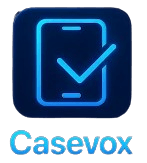Are You receiving Debt Collection Calls for Someone Else?
Are You Receiving Debt Collection Calls for Someone Else? If you are receiving calls from a debt collector looking for someone else, you may be entitled to statutory damages under the FDCPA. The Fair Debt Collection Practices Act (FDCPA) is a federal law in the United States that governs the actions of third-party debt collectors who are attempting to collect debts on behalf of others. Under the FDCPA, debt collectors must follow certain guidelines and are prohibited from engaging in abusive, deceptive, or unfair practices.
If a debt collector is pursuing the wrong debtors, it could potentially be a violation of the FDCPA. The Act requires that debt collectors communicate with the consumer who owes the debt and not harass or contact third parties (such as friends, family, or employers) about the debt unless explicitly allowed by law. Under the FDCPA, you may be entitled to statutory damages up to $1000, plus the offending debt collection agency is responsible for paying your attorney fees.
If you believe that a debt collector is incorrectly pursuing you for a debt that you do not owe or if they are contacting the wrong person, you may want to take the following steps:
- Verify the debt: Request written verification of the debt from the debt collector. They are required to provide this information within five days of their initial contact with you.
- Dispute the debt: If you believe the debt is not yours, you have the right to dispute it with the debt collector. Send a written dispute letter within 30 days of receiving the debt validation notice.
- Keep records: Document all communications with the debt collector, including dates, times, names, and any relevant information. This documentation can be useful if you need to file a complaint.
- File a complaint: If the debt collector continues to pursue the wrong debt or engages in other violations of the FDCPA, you can file a complaint with the (CFPB) and your state’s attorney general office.
- Consult an attorney: If you believe your rights under the FDCPA have been violated, consider consulting with an attorney who specializes in consumer protection or debt collection practices.
Wrong Debtors: A Violation of Consumer Rights
One of the fundamental protections the FDCPA provides is the right of consumers to be free from harassment and unfair practices in debt collection. Pursuing the wrong debtors directly contradicts this principle. Debt collectors are obligated to communicate with the actual debtor, and contacting the wrong person may lead to various complications.
Verification of Debt:
Upon initial contact, debt collectors are required to provide consumers with written verification of the debt. This verification should include details such as the amount owed, the name of the creditor, and the consumer’s rights to dispute the debt. Pursuing the wrong debtors without ensuring accurate information can lead to potential violations of the FDCPA.
Disputing the Debt:
If a consumer believes they are being pursued for the wrong debt, the FDCPA grants them the right to dispute the debt. Within 30 days of receiving the debt validation notice, consumers can submit a written dispute to the debt collector. This dispute triggers an obligation on the part of the debt collector to investigate the validity of the debt and provide the consumer with accurate information.
Implications for Debt Collectors:
Debt collectors must exercise due diligence to ensure they are pursuing the correct debtor. Contacting the wrong person not only violates the FDCPA but may also expose the debt collector to legal consequences. The Act explicitly prohibits deceptive practices, including misrepresenting the character, amount, or legal status of a debt. Pursuing wrong debtors could be construed as a misrepresentation, leading to legal action against the debt collector.
Documentation and Consumer Rights:
Consumers facing harassment or collection attempts for debts they do not owe must keep detailed records of all interactions with debt collectors. This documentation can serve as crucial evidence in case of FDCPA violations. Consumers have the right to be treated fairly and without harassment, and maintaining a record of communications helps strengthen their position in the event of a dispute.
Filing Complaints:
In cases where debt collectors persistently pursue wrong debtors or engage in other FDCPA violations, consumers can file complaints with regulatory bodies. The (CFPB) is a primary avenue for such complaints at the federal level. Additionally, consumers can contact their state’s attorney general office to report violations occurring within their jurisdiction.
Legal Recourse and Consultation:
Consumers who believe their rights under the FDCPA have been violated may seek legal recourse. Consulting with an attorney specializing in consumer protection or debt collection practices can provide valuable guidance. An attorney can assess the specifics of the situation, advise on the best course of action, and represent the consumer’s interests if legal proceedings become necessary.







